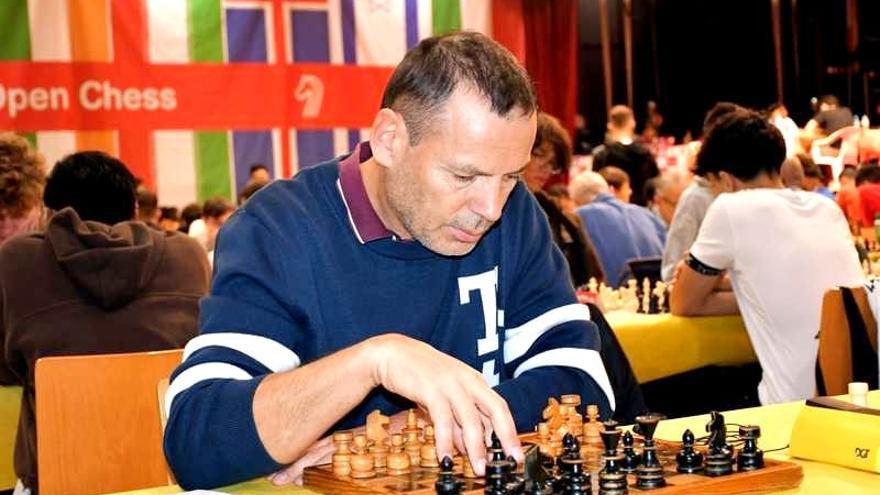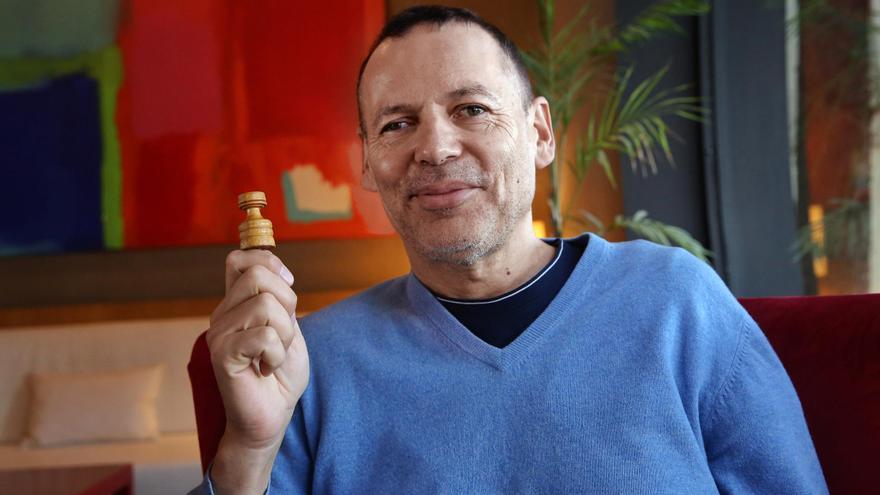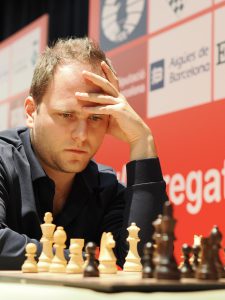The day this week that we met with the Polish Piotr Dukaczewski had no game. I needed to rest after an intense competitive day. “It’s very tough this tournament for me. There are a lot of very good and young players,” he says, half laughing. The tournament he refers to is the Llobregat Open Chess that is being held in Sant Boi – “the strongest open tournament in Europe”, as Miguel illescas says- and that this Friday brings the curtain down. Of the 240 participants, Piotr is the last in the ranking. He is also the only one who is blind. (Originally published in El Periodico at https://www.elperiodico.com/es/deportes/20231207/dukaczewski-invidente-desafia-grandes-ajedrez-sant-boi-95542225)
“Normally, I play against players who have a handicap. It’s easier because we all have the same kind of problems. Here I need a lot of concentration and strong fitness to perform accurately after three or four hours of play. It’s tough but at the same time it’s good training even if I lose,” he explains.

Piotr Dukaczewski, in Sant Boi. / LLOCH
Dukaczewski, almost 59 years old, has been one of the best blind chess players in the world. He has a world title, several sub-championships, several participations in the chess olympics and champion in numerous times in his country for visually impaired players. His peak performance days are long behind him. Even so, he dares to take on teachers and young prodigies without visual impairments.
Early learning
He says he has been playing for 50 years. His father, an amateur player, taught him at the age of 7 and he was immediately fascinated. However, when he was 9 years old he suffered from toxoplasmosis, an infection that gradually left him completely blind. He continued to play open games, but soon discovered that there is a historic tradition between chess and the sightless. “At first I played normal tournaments with memory; after a while I needed a special board. And I discovered tournaments for the blind.”
He shows us his board. “I’ve had it since I was a kid.” Each piece has a different shape on the head that allows you to recognize them by touch and each square has a hole for nailing the pieces. “I have the board in my mind. I can play without a board, just saying the moves, that’s not a problem. Formally it’s necessary, even if it’s for arbitration. But, of course, without a board I need more effort to concentrate. It’s easier for me if I can touch the pieces from time to time.”

Piotr Dukaczewski / ELISENDA PONS
In general, their games are played with two boards. His own, which he alone touches, and that of his opponent, without the special conditioning. And they verbalize their movements. Sometimes the opponent prefers not to communicate at all. You know how special these geniuses can be. Then you need an assistant to move the pieces on your own board.
I work for an NGO
If someone wonders if he could put a blindfold on a great master in the world, Dukaczewski would answer conclusively no. They also have the board in their heads. “And they analyze variations very quickly and very accurately. For blind people, it’s impossible to get to that level.”
No, a blind man could never be world champion. “Although we can play good games against grandmasters. When they are very advanced and the clock is ticking we make mistakes more often because we need more time to think about the situation and analyze the variations. The same in the process of training and practicing. We need more time to take in the same level of information.”
He says that in his semi-professional days he trained three or four hours a day. “Now it’s three or four a week.” And he laughs. In Warsaw he works in an NGO for the disabled that undertakes projects in education, sports, rehabilitation and the like and has been vice-president of the International Braille Chess Association (IBCA). He leaves Sant Boi with a bag of defeats, but the spirit of improvement intact.




















